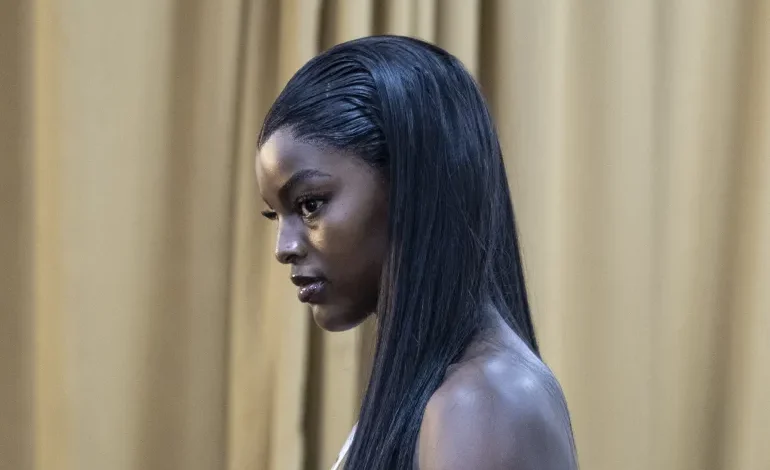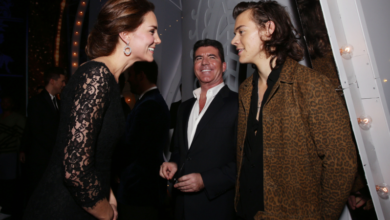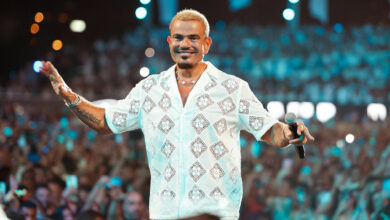How a beauty queen became the face of South Africa-Nigeria tensions

Anita Odunyao Solarin, a 21-year-old Nigerian who has spent her entire life in South Africa, finds it safer not to disclose her West African roots.
She does her best to assimilate with her peers and rarely volunteers her origins. This, she says, shields her from persistent bullying – a phenomenon she’s faced since childhood after moving to South Africa as a baby.
“I try not to show where I am from or look Nigerian. I hide my identity socially,” Solarin told Al Jazeera. “Because I’ve had to do it for so long, it has become normal.”
Her earliest memories of the tensions between South Africans and Nigerians date back to kindergarten, where she was mistreated by a peer.
“It was disheartening. A child, just four years old, hated me even though we were in the same school, looked the same, and did the same things,” Solarin shared.
“My school life was tough because I was bullied for my background. I was called names, especially the derogatory term, makwerekwere [a local slur for foreigner]. South Africans have this idea that if you’re not one of them, you don’t deserve to be here,” she added, her frustration still palpable.
Solarin was brought up in Pretoria, but she doesn’t feel like she belongs in South Africa. Even decades on, she says it’s still easier for her – and other young Nigerians – not to disclose their heritage.
“Not many Nigerian children here will say ‘I am Nigerian’ because they are scared of the backlash and the hate. It’s just not safe for them,” she said.
South Africa has a long history of simmering anti-foreigner sentiment, and social tensions directed at other Black Africans in the country have turned violent over the years.
However, it’s recent events that have deepened Solarin’s disappointment with South Africa when, last month, 23-year-old beauty queen Chidimma Adetshina faced such severe xenophobic harassment as a finalist in the Miss South Africa (Miss SA) pageant that she eventually exited the competition.
Chidimma Adetshina debacle
Adetshina, who was born in Soweto, Johannesburg to two immigrant parents, proudly spoke of her Nigerian heritage during Miss SA, sparking outrage from South Africans on social media.
Many insisted she had no right to represent South Africa in the competition.
When the controversy around Adetshina began, Solarin said she raised the matter for discussion with some of her international relations professors at the University of Pretoria, but was largely ignored. Her peers, on the other hand, tried to justify their belief that Adetshina should be disqualified based on unfounded rumours that her father may have been linked to criminality.
“[Adetshina] was bullied online because her father was Nigerian. If it had been any other nationality, there wouldn’t have been a problem,” Solarin said. “People even said her father was a drug dealer. Where does that come from? It’s the assumption that all Nigerians are criminals – it’s annoying.”
For weeks, Adetshina endured trolling and abuse, with the online vitriol amplifying existing South African-Nigerian tensions that are fuelled by economic frustrations and stereotypes about foreigners.
South Africa suffers from widespread unemployment and sluggish economic growth. While the government does little to improve the situation, many find it easier to turn on migrant African communities, accusing them of taking jobs and increasing criminality. These tensions inevitably spill into social media debates, where xenophobic rhetoric soars.
Adetshina’s situation came to a head when a video went viral of her celebrating her Miss SA qualification with her father, who was dressed in traditional Nigerian attire. The backlash was swift and relentless.
South Africa’s Minister of Sports, Arts, and Culture, Gayton McKenzie – known for his xenophobic rhetoric – only added fuel to the fire.
“We truly cannot have Nigerians compete in our Miss SA competition. I wanna get all the facts before I comment, but it gives funny vibes already,” McKenzie posted on X.
This statement set off a barrage of online abuse, escalating into manifest threats – despite the fact that Adetshina was born in South Africa and therefore qualified to compete.
The South African Department of Home Affairs launched a formal investigation. Minister of Home Affairs Leon Schreiber alleged that Adetshina’s mother had committed identity theft when registering her as a South African citizen.
While the government admitted Adetshina had committed no crime, her mother – who claims South African and Mozambican descent – became the subject of a criminal investigation. Both women denied any wrongdoing, but the pressure eventually forced Adetshina to withdraw from the Miss SA pageant.
“I have made the difficult decision to withdraw from the competition for the safety and well-being of my family and me,” she announced on Instagram in August, days before the Miss SA final.
The abuse had become too much to bear, leading her to quit social media platform X and limit her Instagram engagement. Adetshina later went on to compete in and win the Miss Universe Nigeria contest, representing her father’s homeland on the basis that she carries dual citizenship.
In interviews, Adetshina shared how the ordeal left her questioning whether she would ever return to South Africa. The emotional scars were so deep that she admitted she would seek therapy to cope.
‘Disappointed in South Africa’
For Solarin, Adetshina’s withdrawal was disheartening.
“I was very disappointed in South Africa,” she said, her voice filled with regret. Solarin, who dreams of one day becoming a public figure in the political arena, hopes to educate people about the consequences of the social tensions between South Africans and Nigerians.
However, “I don’t see a future for myself in South Africa”, she confessed.
Solarin’s mother, Doris Ikeri-Solarin, who is the head of the civic group Nigerian Union South Africa, says Adetshina was unfairly targeted by anti-Nigerian sentiment.
“This young lady was born, raised, and educated in South Africa. Whatever happened before she was born, she had no control over it. She grew up with the ambition of becoming a beauty queen, and suddenly, because of this tension, she has fallen victim. Even if it turns out her mother was involved in identity fraud, Chidimma shouldn’t have to bear the consequences,” she said.
She views the bullying of Adetshina as a symptom of a deeper rivalry.
“This goes beyond Chidimma. You see it in sport, in school competitions – any time there’s a Nigerian involved, there’s this underlying envy. South Africans don’t want Nigerians to outshine them,” she said.
Ikeri-Solarin compares the experiences of her two daughters: 21-year-old Anita, who studies in South Africa, and 23-year-old Esther, who studies in the United States.
“There’s a stark difference. In South Africa, they see foreigners as threats,” she said, adding that the government should do more to educate citizens. “People migrate all over the world. There are South Africans living abroad, and they’re not treated the way Nigerians are here.”
South Africa witnessed outbreaks of severe xenophobic violence in 2008 and 2015 in which dozens of people were killed. NGO Xenowatch also reported 170 incidents of xenophobia in 2022 and 2023 and 18 incidents in the first quarter of 2024.
South African foreign relations analyst Sanusha Naidu explained that anti-immigrant sentiment in South Africa is Afrophobic. However, she cautioned against interpreting the Adetshina debacle as South Africans targeting Nigerians more.
“Let me put it this way, Nigerians give as they get,” she said of the online social rivalry between both states.










